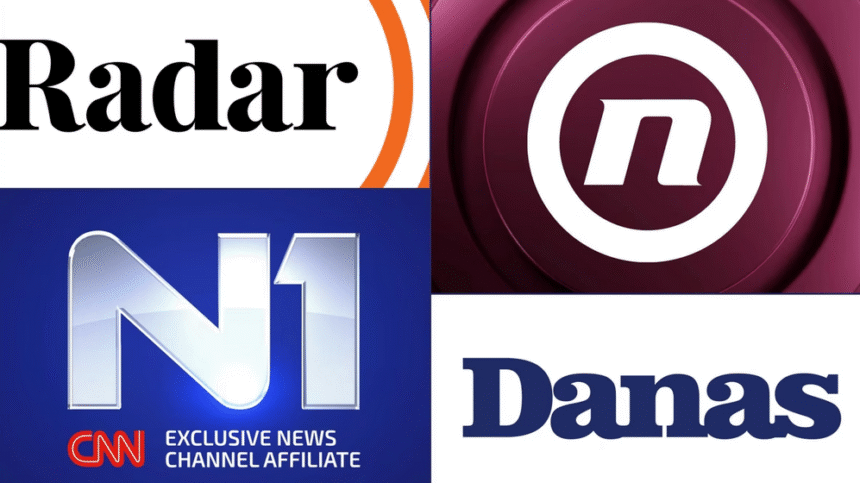The last independent media outlets in Serbia are under serious threat as the government consolidates control over the United Media (UM) group, which includes television channel N1 and daily newspaper Danas, according to the French publication Courrier des Balkans.
Dragoljub Petrović, editor-in-chief of Danas, described the tense atmosphere, saying: “It feels like being in the U.S. Embassy in Saigon in 1975. We are waiting to see what will happen and whether we need to evacuate to a safer place.” His remarks reflect the fear among journalists working within United Media, the last stronghold of independent journalism in Serbia.
UM, which also includes Nova S and the weekly Radar, operates across Serbia, Bulgaria, Montenegro, Bosnia and Herzegovina, North Macedonia, and Greece. The outlet has long been targeted by President Aleksandar Vučić’s regime, and recent developments raise concerns about a potential loss of editorial independence.
The crisis escalated after United Group sold its cable operator SBB to state-owned Telekom Serbia for €825 million, including licenses for the sports channel Sport Klub. Following the sale, founders Dragan Šolak and executive Viktoria Boklag were removed from the company’s board, replaced by Sten Miller and Libor Vončina. Staff were assured that operations would continue as normal, but no guarantees were given regarding funding, particularly the €12 million annual budget required for N1 and Nova S.
Tensions intensified when Bojana Mijailović was replaced by Vladica Tintor as director of United Group Serbia on August 20, 2025. A week later, the investigative network OCCRP and partner KRIK released an audio recording of a conversation in which Sten Miller, the new director, discussed plans to fire Aleksandra Subotić under pressure from Telekom Serbia and Vučić’s regime.
Igor Božić, director of N1, called the recording a shock: “We had no idea all this was being prepared behind our backs, though we knew President Vučić would do everything to destroy us.” United Group confirmed the recording’s authenticity but claimed it was “incomplete and taken out of context.”
Božić emphasized that the government’s goal is total media control: “We cover only 35% of the territory, but our daily coverage of student protests over the past year makes us too influential for Vučić, whose regime is being seriously shaken for the first time. He is ready to use Telekom Serbia’s money to control us.”
Since the start of 2025, N1 journalists have been attacked over 40 times, both verbally and physically, while pro-government tabloids constantly demonize United Media journalists.
European Union Responds Firmly
The situation has drawn attention from Brussels and Strasbourg. On October 22, the European Parliament passed a resolution with 457 votes in favor, warning that Serbia’s government negotiated with United Media owners to weaken independent outlets. The resolution described this as a serious threat to media pluralism in Serbia, already under severe pressure.
United Group stated that editorial independence remains sacred for management and shareholders. Vučić dismissed the EU resolution as “the work of pathological liars, seriously ill people.”
For now, 300 employees of N1 and Nova S hope that EU pressure and advocacy by organizations such as the International Press Institute (IPI) and Reporters Without Borders (RSF) will compel BC Partners, majority owner of United Group, to halt efforts to undermine independence.
Igor Božić warned: “Otherwise, we will soon be in complete darkness.”







